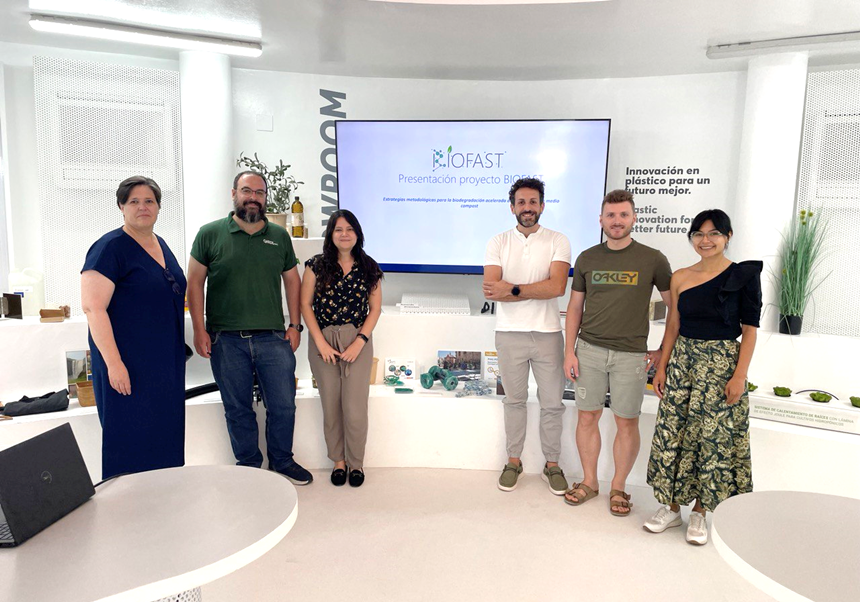
The MATS group concludes its participation in the BIOFAST Project for the development of strategies to accelerate the biodegradation of bioplastics in compost environments
The BIOFAST project, funded by the Valencian Innovation Agency (AVI) and involving the Materials Technology and Sustainability group MATS from the Chemical Engineering Department of the Higher Technical School of Engineering ETSE of the University of Valencia, coordinated by the Plastics Technology Institute AIMPLAS and carried out in collaboration with the company Prime Biopolymers, has successfully concluded, achieving its main objective: reducing the biodegradation time of bioplastics in composting environments.
BIOFAST, an initiative supported by the European Regional Development Fund (ERDF) of the Valencian Community, has developed and validated an innovative methodological protocol that combines specific bioplastic formulations, various oxidative pre-treatment technologies, and compost enrichment to accelerate the biodegradation process of bioplastics.
During the project's execution, the MATS group applied a series of abiotic pre-treatment technologies to biopolymeric materials, including plasma irradiation, UV radiation, and hydro- and chemothermal degradation. The impact of these oxidative pre-treatments was evaluated in terms of short- and medium-term stability of the structure, morphology, and functional performance of the materials.
For its part, Prime Biopolymers successfully prepared various compositions of compostable biopolymeric materials in film form, while AIMPLAS enriched and characterized the compost intended for the biodegradation process. The combination of these efforts allowed the optimization of composting conditions, facilitating an ideal environment for the accelerated decomposition of bioplastics.
The results of the BIOFAST project have not only demonstrated an effective reduction in the biodegradation time of bioplastics but have also generated significant economic and environmental impacts. The acceleration of biodegradation allows greater efficiency in composting plants, reducing operating costs and improving the sustainability of waste management processes. This advancement represents an important step towards a circular economy, where bioplastics can be rapidly decomposed and valorised, reducing the accumulation of plastic waste and mitigating its environmental impact.
The success of the BIOFAST project opens new opportunities for the implementation of these technologies in industries related to waste management and bioplastic production. The developed protocol could be adopted on a large scale, promoting more sustainable and efficient practices in the treatment of compostable bioplastics.
BIOFAST Project: METHODOLOGICAL STRATEGIES FOR ACCELERATED BIODEGRADATION OF BIOPLASTICS IN COMPOST ENVIRONMENTS (INNEST/2022/295)






